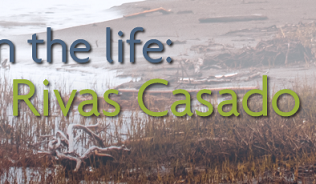We are increasingly facing ‘wicked problems’. While traditional scientific, policy and management approaches can make useful contributions, we need something in addition to these if we want to address more of the complexity and conflict associated with wicked problems. Systems thinking can help.
In this talk, Gerald Midgley introduced a framework of systems thinking skills, plus a variety of systems ideas and methods, that can help people put these skills into practice. He illustrated the use of the methods with a number of examples from his own social policy, natural resource management and community development projects in the UK, New Zealand and Nigeria. In this way, Gerald's talk showed how we can begin to get a better handle on wicked problems. This talk was followed by a Q&A session with the live audience.
This event was organised as part of our Turning the Tide: systems thinking for a sustainable ocean project, which has been endorsed as a UN Ocean Decade Activity, but will be of interest to all environmental professionals.
How can I get involved?
Join our dedicated mailing list to stay up to date on future Turning the Tide project activities and hear about ways to collaborate.
If you want to support the work of the IES to shape the future of the environmental sciences, consider becoming a professional member of the IES or join as an affiliate.
Other ways you can get involved include:
- Join our Marine and Coastal Science Community and attend our meetings twice per year
- Join our Marine and Coastal Science Community LinkedIn group
- Sign up to our upcoming events for the project as they are announced
- Let us know your perspective by contributing a blog or analysis piece for the IES website
- Get in touch to find out more about the project and explore ways you can collaborate





